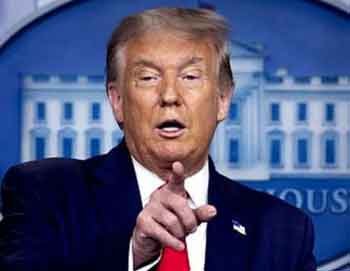In a pivotal moment for the U.S. government, Mike Johnson, the Republican Representative from Louisiana, was once again re-elected as the Speaker of the House of Representatives. This victory, secured in 2023, stands as a testament to Johnson’s political acumen and his determination to secure enough support within his party. Despite the backing of former President Donald Trump, Johnson faced substantial hurdles before achieving the crucial 218 votes required to reclaim the Speaker’s gavel. This article takes a deep dive into the events surrounding his re-election, the key challenges he encountered, and the factors that influenced his path to victory.
Mike Johnson: A Political Figure with Determination
Mike Johnson, who had previously been elected Speaker of the House in 2023, continued to demonstrate his capacity for leadership despite significant opposition. As a Representative from Louisiana, Johnson’s career has been marked by his dedication to conservative values, his strong support for the Republican Party, and his willingness to navigate the complex dynamics of Congress.
In his first term as Speaker, Johnson was recognized for his advocacy on issues ranging from national security to economic reform. His commitment to maintaining a strong Republican presence in the House made him a prominent figure within the party, but it also placed him at the center of political contention, especially as he sought to balance differing factions within his own party.
The Backing of Donald Trump: A Key Element in Johnson’s Campaign
One of the most significant aspects of Mike Johnson’s re-election was the support he received from Donald Trump, the former president and key figure within the Republican Party. Trump’s endorsement carried substantial weight, offering Johnson a degree of legitimacy and recognition, particularly among conservative voters. However, despite the former president’s endorsement, Johnson still faced an uphill battle within his party.
Trump’s influence has remained undeniable, with many Republican representatives looking to align themselves with his ideological stance. Johnson’s ability to gain Trump’s support was essential, but it wasn’t the sole factor that determined his victory. The backing of Trump signaled strong conservative unity but also highlighted the internal divisions within the Republican ranks, making it necessary for Johnson to lobby other members for support.
The Battle for 218 Votes: A Hard-Earned Victory
In order to be re-elected Speaker of the House, Johnson required at least 218 votes, a majority of the House members. However, his journey to securing this majority wasn’t smooth. Initially, three Republican representatives refused to support him, creating a significant hurdle for Johnson. This early resistance underscored the fractious nature of the Republican Party, where diverse interests and priorities often clash.
Undeterred, Johnson embarked on a strategic lobbying campaign. Over the course of 45 minutes, he worked tirelessly to persuade the dissenting members to back his candidacy. Through his efforts, Johnson eventually secured the necessary support, gaining the backing of two Republican members who had previously been on the fence. This late-stage shift proved crucial in ensuring that Johnson achieved the required majority and was ultimately re-elected as Speaker.
The significance of this 45-minute lobbying session cannot be overstated. It highlighted Johnson’s political finesse and his ability to navigate complex intra-party negotiations. By appealing to his colleagues’ interests and concerns, Johnson was able to unite the Republican faction behind his leadership, ultimately securing the 218 votes needed to reclaim the Speaker’s role.
The Role of Party Unity and Internal Struggles
While Johnson’s victory was a major achievement, it also underscored the challenges faced by the Republican Party in maintaining internal unity. The fact that three Republican members initially resisted supporting Johnson points to the ongoing ideological divisions within the party. These divisions reflect broader debates over the direction of the Republican Party, with some members advocating for more moderate policies, while others push for a more hardline conservative approach.
Johnson’s ability to secure the votes of these members demonstrates his skill in building consensus. As Speaker, he will need to continue balancing these internal tensions, ensuring that the Republican Party can maintain its unity in the face of external pressures. His leadership will be tested as he navigates critical issues, such as federal spending, national defense, and social policies, all of which have deeply divided the Republican caucus in recent years.
The Future of the U.S. House of Representatives Under Speaker Mike Johnson
With Johnson re-elected as Speaker, the future of the U.S. House of Representatives is now in his hands. As Speaker, Johnson will play a pivotal role in shaping legislative priorities and overseeing the passage of key bills. His leadership will likely focus on advancing conservative policies, particularly in areas like tax reform, immigration, and national security.
One of the immediate challenges Johnson faces is maintaining party unity while responding to external pressures from the Democratic Party and the broader electorate. His ability to navigate these complex relationships will be crucial in ensuring that the Republican Party remains relevant and effective in the coming years. Furthermore, Johnson’s leadership will be tested as he works to address the nation’s most pressing issues, including healthcare reform, climate change, and income inequality.
The Political Landscape Ahead: Challenges and Opportunities for Speaker Johnson
As Speaker of the House, Mike Johnson is well-positioned to exert significant influence on the legislative process. However, he will face numerous challenges, both within his party and from across the aisle. The increasing polarization of U.S. politics means that Johnson will have to balance the demands of his party’s right-wing faction while attempting to build bipartisan coalitions where necessary.
Additionally, Johnson must contend with the growing popularity of progressive policies within the Democratic Party. The push for universal healthcare, climate action, and immigration reform will present significant challenges to Johnson’s conservative agenda. Nevertheless, Johnson’s ability to advocate for conservative principles while engaging in effective negotiations will be critical in shaping the future of U.S. policy.
















